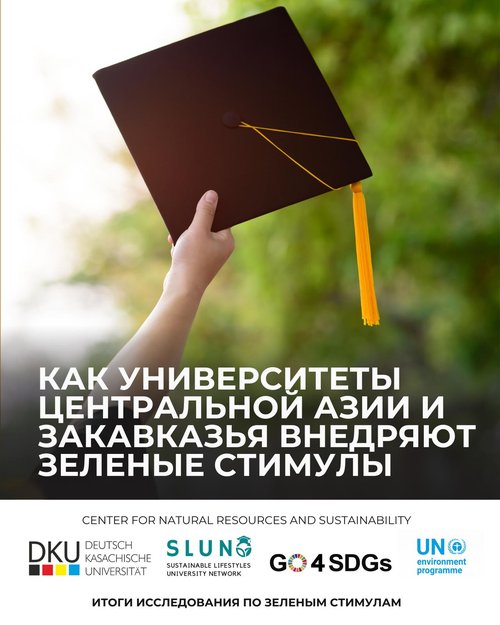


Within the framework of the “Global Opportunities for Sustainable Development Goals (GO4SDGs) in Central Asia and the Caucasus” project, a study was conducted on the implementation of “Green Nudges” in universities in Central Asia and the South Caucasus. These soft and positive methods are aimed at fostering sustainable behavior among students. For example, placing more sustainable products in dining halls in accessible locations can motivate students to make informed choices while maintaining freedom of decision.
A total of 43 universities participated in the study, and the results provide an assessment of what sustainability practices are most popular in the region, what successes have been achieved, and what challenges remain to be overcome.
Key findings:
✅ Energy conservation proved to be the most in-demand area among universities.
✅ Staff and student engagement is key: lack of initiative hinders the implementation of a number of green nudges, especially in reducing food waste and building sustainable dietary habits. Increasing engagement is an important success factor.
✅ Financial constraints remain a major barrier to sustainability.
📖 Read the full reports in more detail by clicking here: https://drive.google.com/drive/folders/1FCSrEgbdE5vikJKPrTq4CdoDX32jGoIS?usp=sharing